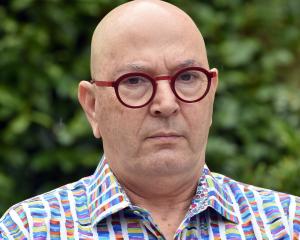The six-member inquiry team will be chaired by former ombudsman and health and disability commissioner Prof Sir Ron Paterson.
The inquiry has a $6.5million budget, and is expected to report back by the end of October.
Corinda Taylor, founder of the Life Matters Suicide Prevention Trust, welcomed the inquiry, although she wished it had been a full royal commission.
''It looks pretty good, but I wonder if they will be able to get to the bottom of it all in such a short period of time,'' Mrs Taylor said.
''At the moment our complaints aren't being heard and people are powerless to make their complaints stick ... we want to see policy changes and accountability.''
The inquiry will be supported by two other panels - a group of mental health service users, and a youth panel.
Health Minister David Clark said the purpose of the two support panels was so Government could hear from two groups directly affected by mental health issues, but which Government seldom heard from.
Dr Clark and Prime Minister Jacinda Ardern defended not creating a full royal commission, saying a ministerial commission would be a faster but equally as effective.
''It will be independent, and the Government will take its recommendations seriously,'' Dr Clark said.
''Nothing is off the table,'' Ms Ardern said.
''We all know we have a problem with mental health in this country and our suicide rate is shameful. It is well past time for us to do something about it.''
As a priority, the inquiry would collate a ''baseline'' of current mental health and addiction research and services, to identify what was available and what new services might be required.
However, there would likely be few quick fixes, and increasing funding would not necessarily mental health concerns, Dr Clark said.
''In many cases we need to rebuild work forces.
''It's not just a matter of tipping money back in again.''
A mental health inquiry was one of Labour's election promises, and it had pledged to set it up within its first 100 days in office.
Ms Ardern said addiction services were part of the review as they were often interlinked with mental health.
''We know that services are stretched. Demand has grown rapidly in recent years.
''In 2016-17 more than 170,000 people used mental health and addiction services. That's up by 71% on a decade earlier.''
The Mental Health Foundation called the inquiry an investment in New Zealand's future.
''We know we don't have things right now, there are many signs of a system under pressure,'' chief executive Shaun Robinson said.
''These include a suicide rate that is not decreasing, reports of understaffing and high staff turnover within services, and inadequate crisis responses that leave too many people without support when they most need it.''
Input from a range of sectors and a focus on prevention were two welcome inclusions in the terms of reference, Mr Robinson said.
National mental health spokesman Matt Doocey said urgent action was needed, not a lengthy inquiry.
''A government can't guarantee that an inquiry will fix anything,'' he said.
''The risk is that we wait 18 to 24 months to learn services can be improved while, in the meantime, there are people who need the help now.''
Need help?
Healthline 0800 611 116
Lifeline Aotearoa 0800 543 354
Suicide Crisis Helpline: 0508 828 865 (0508 TAUTOKO)
Samaritans 0800 726 666
Alcohol Drug Helpline 0800 787 797
General mental health inquiries: 0800 44 33 66
The Depression Helpline 0800 111 757
Comments
Mentally ill people are held in prisons, because there are no residential services for them. Presumably, they have committed crime, but 'well' crims with form for major crime against people get h.d.
It is a failure of Justice.












